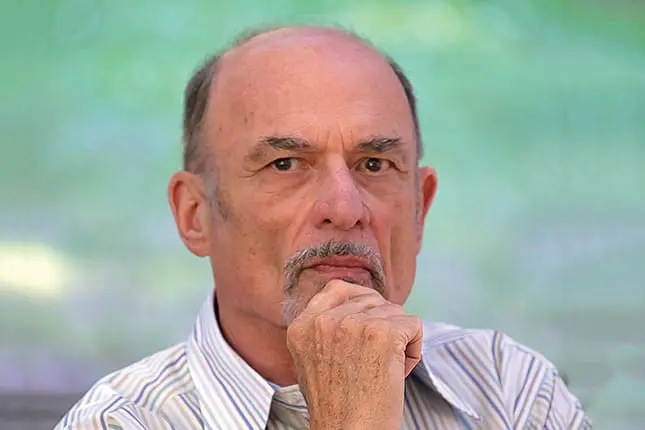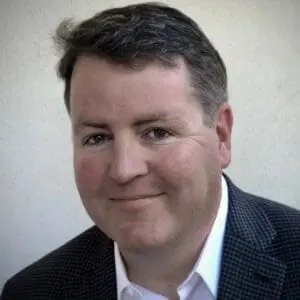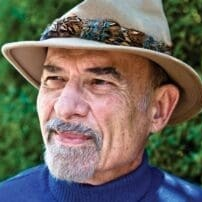Enjoy the audio preview version of this article—perfect for listening on the go.
This article first appeared in the September/October 2010 issue.
Throughout his long career, Irvin Yalom, psychotherapy’s most prominent practitioner of Existential Psychotherapy, has argued that most therapists don’t go nearly deep enough with their clients, no matter how far they’ve delved into their family background or psychosexual dream life. For him, beneath the ordinary problems of depression, anxiety, anger, and insecurity that clients bring into therapy, there beats the muffled drumbeat of something darker. The focus of his work has been bringing to light the more universal and terrifying themes that lurk below the surface of clinical work—the challenge of freedom, the inevitability of human loneliness and isolation, the troubled search for meaning, and the real biggie: the certainty of death. That theme—facing the sure knowledge that all our fondest hopes, dreams, projects, and plans must end with our own oblivion, however diversified our portfolios may be—is the focus of his book Staring into the Sun, which he discusses in this interview.
———
RH: My 101-year-old grandmother is much closer to dying than a 37-year-old like myself, yet I worry, while she’s at peace. She’s fine with the idea of passing on.
YALOM: Well, your grandmother probably feels she’s gone through her life’s course and may feel relatively satisfied with the way she’s lived. She may not be feeling she’s sitting on a tremendous storehouse of unlived life, and she’s comfortable with that.
RH: Do you feel comfortable with the amount of life you’ve had?
YALOM: I do. I feel, frankly, that this is a fairly good period of my life right now. I understand exactly what you mean, though—you’ve got a lot of anxiety about death, it’s very frightening to you. You feel you haven’t really lived yet; there are too many parts of you that haven’t been fully experienced or expressed. You want to see the end of stories—see how your seeds sprout in the future.
RH: In your book, you write, “You cannot stare straight into the face of the sun or death.” And then you spend 300 pages doing just that. How did you prepare yourself for that task?
YALOM: I’m really sort of denying that you cannot stare. In fact, not only can you stare, you should be staring in the face of the sun—there’s a great deal of benefit to doing that. I’ve been doing it a very long time, really.
I started after I began to see a group of people who really had to talk about these issues because there was no escaping from it for them. These were people who had a death sentence because they had metastatic cancer. I worked for a long time, most of a decade, with these patients.
So that was my major exposure—I was working many, many hours a week with these patients. I was undergoing a fairly traditional, orthodox psychoanalysis, and it suddenly dawned on me that we hadn’t spent a single one of our 700 hours talking about these death issues. That was part of the preparation for the book: dealing with a lot of anxiety, starting to work with that.
RH: You’re a bit critical of the psychotherapeutic community for not looking at death anxiety more deeply. What can we do about this? Is it a matter of our getting more therapy?
YALOM: What I’ve tried to do is to write this book. I really do believe that death anxiety comes up all the time in therapy. It’s just that we aren’t willing to see it, or are afraid to see it. With my patients, I often run into it; it’s almost unusual when I don’t.
Life is so capricious really—you can’t protect someone all the time. Things happen. As you know, people lose young children, which is the most devastating loss of all. I’ve worked with people who lost a child 30 years ago, and they still can’t quite get their minds around what happened.
RH: I had a dream last night after preparing for this meeting. I’d picked up my infant son from a babysitter and was walking him down the street, and a jet plane that was flying a couple miles away crashed—a horrible explosion. I left the stroller for a second and went to get a better view of the plane crash, and when I came back to the stroller, he was gone.
YALOM: A very frightening dream.
RH: It was frightening. In other dreams, I’ve been on the plane when it was crashing, but in this one, I was watching it and then my son was missing. Someone had snatched him.
YALOM: And then you woke up.
RH: I wasn’t aware that I was afraid of that—that my child could be taken away or snatched or killed or something like that.
YALOM: But part of you was aware of it.
RH: Yeah, sure. My unconscious was very much aware of it.
YALOM: It’s a telling dream, I think. It seems to me it’s a dream about the precariousness of life. We do what we can, but we can’t protect against death; we can’t reverse time in any way.
RH: There’s an interesting quote from Thomas Hardy: “If a way to the better there be, it exacts a full look at the worst.” That jumped out at me as a rationale for really taking a good look at death.
YALOM: Right, we’re staring at the sun—it’s just that the underparts of us are doing it, as your dream indicated. How can you not know about death?
RH: “Some refuse the loan of life to avoid the debt of death.” That seems to be a central theme in your book. Could you expand on that a little bit?
YALOM: Well, there’s this idea that, at one level, we move out into life, we begin to individuate, and then we become frightened at the isolation we feel. So we shrink back into the mass, shrink back into merging with others, and then we’ve lost our self. It’s the idea that we’re not really going to take it upon ourselves to really engage in life—we play it safe. We’re frightened, so we don’t really take advantage of what we could do in life.
I had a meeting with a friend who called me, whom I had not seen in 60 years. He went to look for deeper issues in life. He went to India, and was a meditation teacher, and played music in all parts of the world, without any sort of safety net or anything. He’d just go down to the musician’s union and get a gig, or sign with a band for a week or two, or a month, and constantly be out there. I was really aware that I’ve lived a much safer life than that. Even though I feel like I’ve been daring in my intellectual ventures, in the real world, I’ve been a professor at Stanford. I’ve had tenure right along, and so it’s been a safe type of life for me—without having to be really exposed to things. I almost missed that a little bit; almost feel I’ve been too sheltered to really know what all this precariousness of life is like.
RH: Does death raise any anxiety for you anymore, or have you become accustomed to it?
YALOM: Every once in a while, your barriers break down. You get back to this certain gasp, because there’s no way to reverse time. Death can’t not raise anxiety, but that anxiety is definitely within manageable limits, let me put it that way.
RH: So with a person like my grandmother, who’s tied up her loose ends—that feels OK? And now you—you’re starting a new novel; you’re not stopping work, of course.
YALOM: I carry on a small practice; I see one or two patients every afternoon, sometimes three. But I write most of the day, and it seems pointless not to do this because I’ve gotten to be pretty adept at it, and I enjoy it very much.
RH: Just a few minutes ago, as I was eating lunch down at the corner with my wife and 4-month-old son, and an elderly couple was sitting a couple tables away. As they were leaving, the wife passed by and said, “Oh, what an adorable baby, he’s so wonderful! I could just sit and look at him all day.” And she’s got a smile and a little sadness in her eyes. And her husband kind of tugs at her arm and says, “Come on, honey. We can’t have any more of those”—with a little smile on his face, but a little truth in the joke. And I saw a bit of death anxiety in that.
YALOM: Oh, I think so. They may have lost a child too. It sounds a little bit like it. They’re certainly aware of their stage in life, longing to be able to get back.
Ryan Howes
Ryan Howes, Ph.D., ABPP is a Pasadena, California-based psychologist, musician, and author of the “Mental Health Journal for Men.” Learn more at ryanhowes.net.
Irvin Yalom
Irvin D. Yalom, MD, is one of the world’s foremost psychiatrists, a visionary therapist and internationally bestselling author who has helped define the fields of group psychotherapy and existential therapy. His textbooks Theory and Practice of Group Psychotherapy and Existential Therapy remain standards for therapists in training worldwide, as does The Gift of Therapy: An Open Letter to a New Generation of Therapists and Their Patients. He’s also the author of the New York Times best-sellers Love’s Executioner, Momma and the Meaning of Life, Creatures of a Day, and Staring at the Sun: Overcoming the Terror of Death. A consummate storyteller, his teaching novels based in philosophical inquiry and psychological insight, including When Nietzsche Wept, The Schopenhauer Cure, Lying on the Couch, and The Spinoza Problem, have been best sellers in multiple countries. More at www.yalom.com














